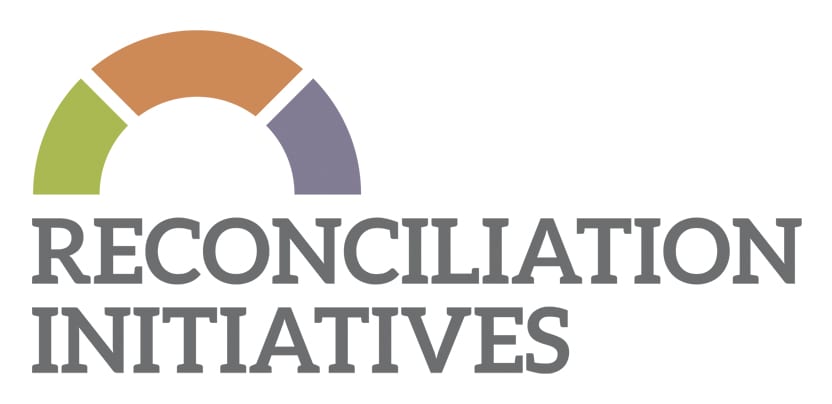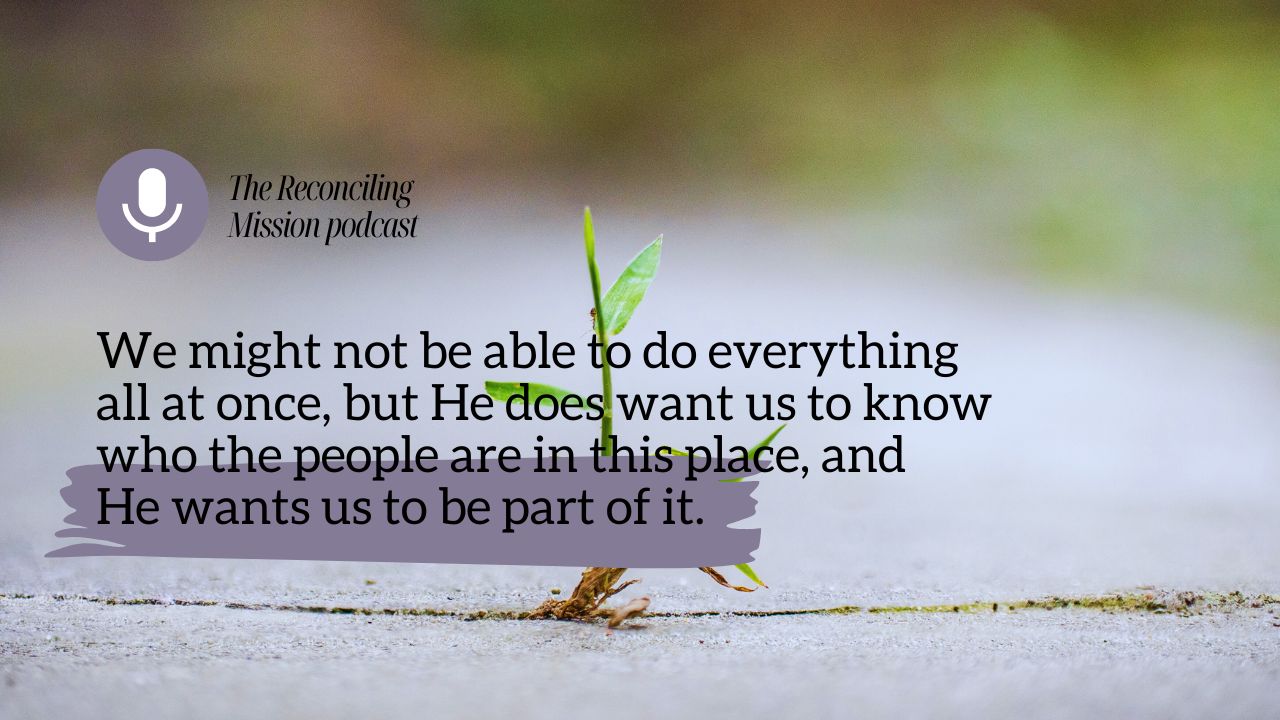In this episode we speak with Rachel Schaeffer, a priest from Newcastle Diocese who has been through the Reconciling Mission programme. She reflects on what she’s learned about leading from behind and discovering the treasures already present in her community.
Rachel first joined the Reconciling Mission programme at the invitation of her diocesan Bishop.
Rachel said: “I got the reading list and thought, ‘I’m not very academic at all! But it’s been fabulous. I have met so many wonderful people through it.”
A different kind of mission
After 17 years of ministry within the Church of England, Rachel said: “Normally mission is all about strategy and outcomes, but this programme asks you to open your eyes and ears, speak to people and listen. That was who I am anyway, and it felt like permission to do it more.”
She describes the programme learning to “lead from behind,” to notice where people in the parish are passionate or feel called, and to support rather than direct. “Often someone would come to me with an idea and through prayer and reflection you begin to see God’s hand in it.”
Treasure hunting in the community
One of Rachel’s key takeaways has been what she calls “treasure hunting.” Rather than filling traditional church roles, she looks for gifts and skills in unexpected places. “It’s about sitting with people over coffee, listening, and seeing the gifts that might be hidden. The back of the tapestry may be messy, but you’re threading the needles to make something beautiful, embroidering church and community together.”
Moving from ‘church questions’ to ‘God questions’
Before the Reconciling Mission programme, Rachel says she lived mostly in the “safe” world of meetings, structures and agendas. “We can talk endlessly about parish share and statistics, but it’s boring and limiting,” she said.
The programme invites participants to ask “God questions” instead: Where is God already at work in the community? Where is the pain, the hope, the life? “Those questions don’t feel safe, but that’s where transformation starts.”
She’s even reshaped her PCC meetings so that mission and relationships come first, and routine maintenance items come last. “If you take the brave step of putting church questions down, the number of baptisms and weddings will look after themselves because you’ve built relationships with people.”
Celebrating local culture: Hadrian’s Wall
When Rachel arrived at one of her parishes, the focus was almost entirely on the church school. “The staff were brilliant, so we let them keep doing what they were doing and we turned to the rest of the community.”
That exploration uncovered the rich history, arts and heritage around Hadrian’s Wall. “We realised the heart of the parish might not be the school but its culture.” Out of that came a festival celebrating the diversity and creativity of the area, the music, a makers’ market, workshops from ukulele to glass making.
Rachel said: “It started with the 1900th anniversary of Hadrian’s Wall. It was so good it’s now an annual event.”
Lessons learned
Asked what advice she’d give others, Rachel said: “Don’t worry about things being perfect. Focus on things being real. If we’re damaging people just to stick to tradition or get it ‘right,’ we’re missing the point. Life is hard sometimes, but we’re never alone. God is with us, and the church can be a web of support.”
She’s grateful that the Reconciling Mission programme doesn’t simply end when the course finishes but continues as a network. “I hope the church becomes a genuinely bottom-led organisation, listening to people who are nothing to do with church but can show us what they need.”
To find out more about the Reconciling Mission programme, visit this web page.

